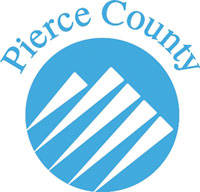Pierce County’s Aging and Disability Resource Center is presenting “Oh My Gosh – Now What?” a free six-part series of discussions for families and individuals that focuses on the initial journey of memory loss through Alzheimer’s and other dementias.
Individuals and families dealing with memory loss or facing a diagnosis of Alzheimer’s are typically filled with anxiety, fear and confusion. It’s a time when the sky can seem to be falling. But there is hope, there are resources, and there are people who can help.
The series begins Thursday, April 13, and covers warning signs and symptoms, managing behaviors, disease progress, legal concerns, financial issues, and local resources.
“Oh My Gosh – Now What?” will be led by Kris Sawyers-Dowling and Jessica Girard, Aging and Disability Resources case managers who specialize in providing practical help to individuals and families coping with memory loss.
The six sessions are:
- April 13 – “What is Dementia? What are the warning signs?”
- April 27- “How does the disease progress? What should I expect?”
- May 11 – “How do I start the conversation? How do I cope with the shock?”
- May 25 – “What are the typical moods and behaviors? How do I manage them?”
- June 8 – “How do I pay for care? What are the legal things I should do?
- June 22 – “Where can I turn for help? What are the resources I can rely on?”
All sessions are free and will be held Thursday evenings from 6 to 7 p.m. at the Pierce County Sound View Building, 3602 Pacific Ave., Suite 200 in Tacoma. People can attend any or all of the discussions. No RSVP is required.
“Currently there are about 100,000 individuals in Washington state with Alzheimer’s,” said Aaron Van Valkenburg, Aging and Disability Resources manager. “In less than 10 years that number is predicted to increase by 40 percent to about 140,000. It is now the third leading cause of death in our state. The rate of death from Alzheimer’s in Washington state now ranks third nationally. This presentation provides accurate, helpful information from reliable sources about caring for family members with Alzheimer’s.”


